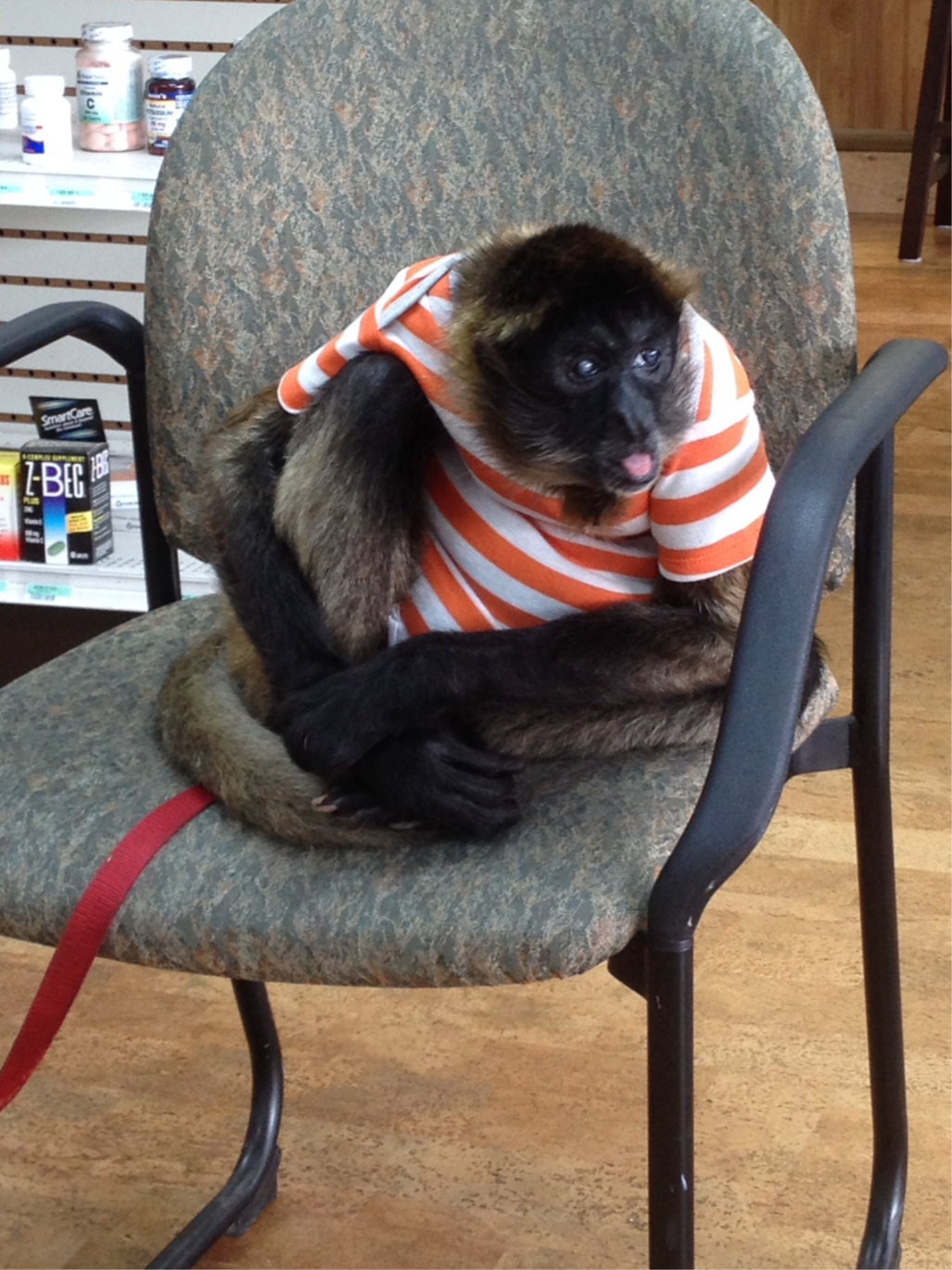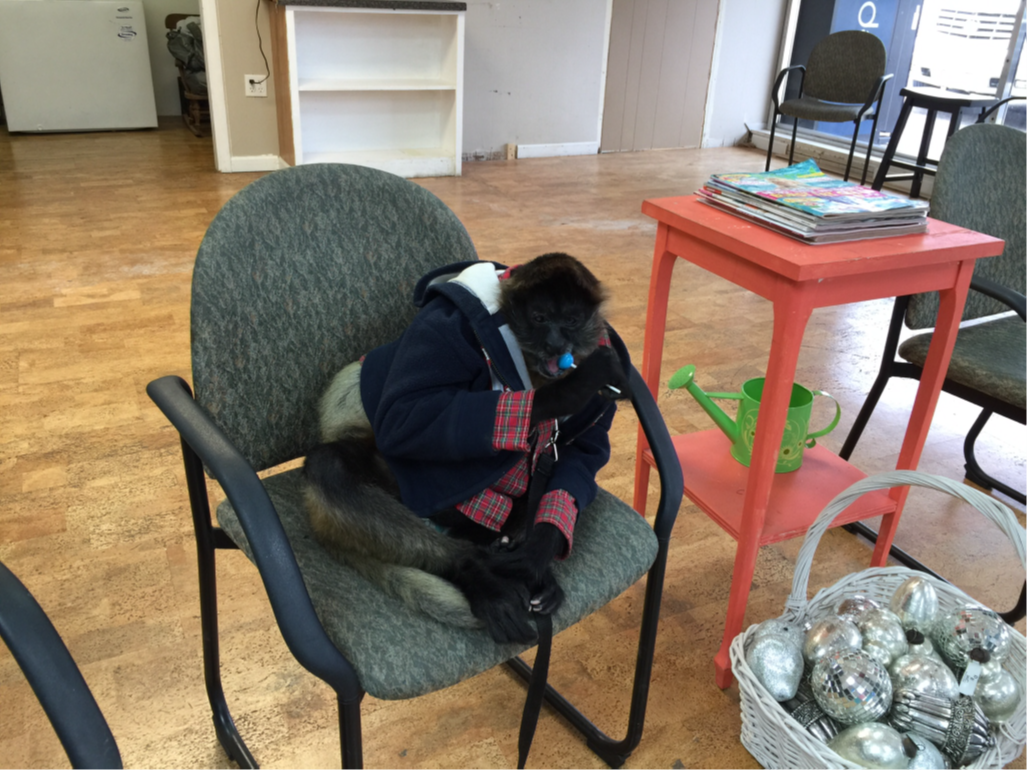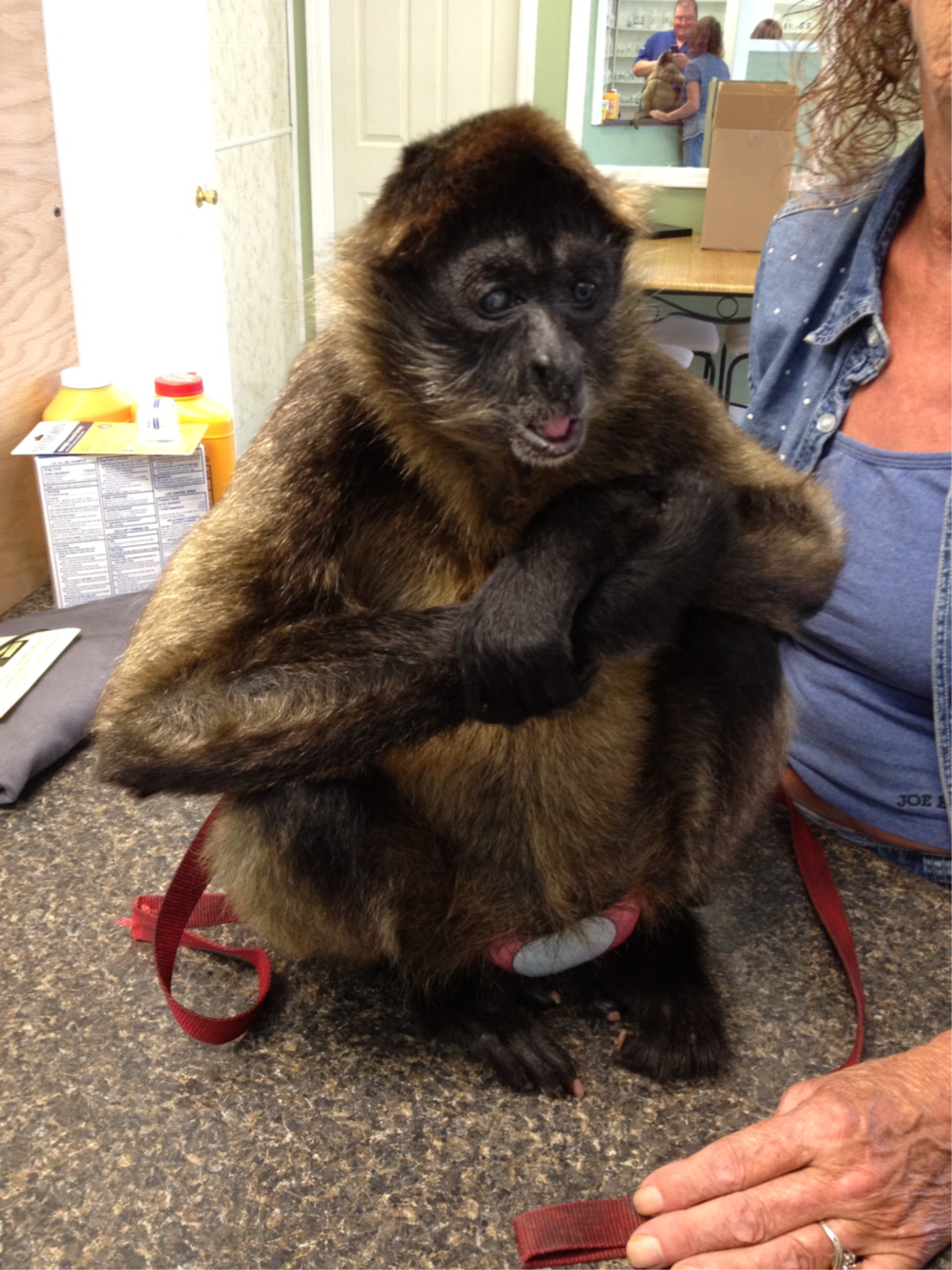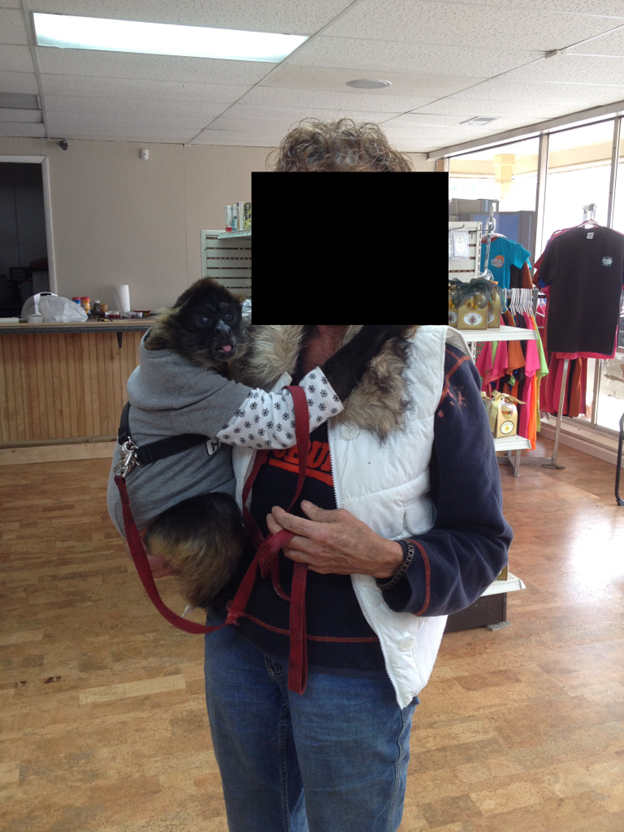Ahead of a Tennessee opioid trial, lawyers squabble over a monkey named Carlos
It's not wrong, per se, that they had a monkey in the pharmacy. Or, as the lawyers put it, "the presence of the monkey inside of Xpress Pharmacy does not constitute a 'bad act'."
Inquisitive readers might be wondering who this monkey is. Did he graduate from pharmacy school? Is there a tail hole in his monkey-sized lab coat?
This article will not answer those questions. What we do know: His name was Carlos and he was a frequent sight in at least one Celina pharmacy that is the target of a federal prosecution related to the unlawful distribution of opioids. Carlos is, prosecutors argue, relevant to the case. To the dismay of the defendants, prosecutors are now fighting to allow testimony about (unfortunately, not by) Carlos to be presented at trial, which is scheduled for April 2.

While Carlos' presence at the pharmacy has been reported several times over the years, more information and the first publicly available photographs of him have recently come out in court filings.
The case Carlos is caught up in centers around a few pharmacists and pharmacy employees in Celina, a small town in Clay County of about 2,000 people. One of those employees is William Donaldson, a former pharmacist who in a separate 2012 case pleaded guilty to illegally dispensing hydrocodone from his business, Donaldson Pharmacy. A Tennessean writer previously reported that Carlos was known to belong to Donaldson and was a mainstay at Donaldson Pharmacy for years.
In a January court filing, Donaldson's lawyers revealed that Carlos the monkey was his certified emotional support animal. As proof, they showed a picture of Carlos' identification card, issued in 2015, on which his name is spelled "Carlose." (The correct spelling of the monkey's name isn't clear. Defense lawyers have adopted the government's spelling of "Carlos" to avoid confusion. The Tennessean is doing the same.)

Donaldson got out of prison for his 2012 guilty plea in spring 2014, at which point Thomas Weir — who had become majority owner of Donaldson's pharmacy and is now his co-defendant — hired Donaldson as a greeter at his old business, which had changed names to "Dale Hollow Pharmacy."
They devised a plan to both recruit patients and alert old patients that Donaldson was at Dale Hollow, according to prosecutors, and Carlos was their key.
"The Government anticipates that witness testimony and other evidence elicited at trial will establish that defendant Weir and Donaldson, who are charged with conspiring to violate the Anti-Kickback Statute, designed a currency, called 'Monkey Bucks,' which was used as an illegal inducement to patients of Dale Hollow Pharmacy, using the likeness of Carlos the Monkey," prosecutors wrote on Feb. 5.

Here seems to be the problem for prosecutors, though: They seemingly have no photos of the alleged Monkey Bucks, which apparently would help prove their kickbacks case against Weir and Donaldson. The best they have are a short-lived knockoff version from Xpress Pharmacy called a "Tulip Buck" and the photos of Carlos, although those pictures were taken at Xpress Pharmacy.
And while prosecutors believe Donaldson may have schemed to bring patients to Xpress, that pharmacy is not accused of using Monkey Bucks. And defense lawyers argue that you can't use a picture of a monkey at one store to prove that the store two doors down was using monkey money.
Beyond that, the defense expects that the photographs would unfairly prejudice a jury against their clients. If a reasonable juror sees a picture of a monkey on a pharmacy counter, they may form some opinions about the owner's judgment in other facets of pharmacy operation.

In response, the government assures the court that everything is above board. They aren't trying to prove that Carlos being at the pharmacy was a "bad act," they wrote.
"The United States is not offering photographs of Carlos the Monkey inside of Xpress Pharmacy to suggest any improper purpose," prosecutors wrote, "nor does it suggest that a pharmacy allowing an animal is unsanitary and thus they must have engaged in illegal dispensing."
Evan Mealins is the justice reporter for The Tennessean. Contact him at emealins@gannett.com or follow him on X, formerly known as Twitter, @EvanMealins.
This article originally appeared on Nashville Tennessean: Ahead of an opioid trial, lawyers squabble over a monkey named Carlos
